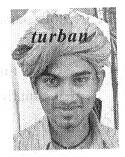题目内容
A businessman lost his wallet. There was plenty of money in it. So he makes a promise(诺言), “If someone finds my wallet and returns it to me, I'll give half the money to him.” A dustman(清洁工) found the wallet in a dustbin(垃圾箱). He sent it back to the loser. But the businessman changed his mind.
“There was still a diamond ring(钻戒) in my wallet,” said the loser. “I won't give half the money in my wallet to you before you return it to me!”
“I've never seen a diamond ring in the wallet,” said the dustman.
They began to quarrel. The businessman didn’t do what he had said. The dustman became angry and took him before a judge (法官).
After the judge heard what had happened to them, he said to the businessman, “I'm sure you are an honest man. It's true that you have lost a wallet in which there was a diamond ring. But it's also clear that there is only a lot of money in this wallet. I don't think it's yours. Wait for some time. Perhaps someone will be able to return your wallet to you!”
Then the judge turned to the dustman and said, “Take the wallet home. If the loser doesn't go to get it back in three days, it will belong to you!”
小题1:The wallet the businessman lost __________.
小题2: The businessman was eager (渴望) to get back the wallet because __________.
小题3: Which of the following is true according to the story?
小题4: Having heard what had happened, the judge ________.
小题5: Where do you think the diamond ring was?
“There was still a diamond ring(钻戒) in my wallet,” said the loser. “I won't give half the money in my wallet to you before you return it to me!”
“I've never seen a diamond ring in the wallet,” said the dustman.
They began to quarrel. The businessman didn’t do what he had said. The dustman became angry and took him before a judge (法官).
After the judge heard what had happened to them, he said to the businessman, “I'm sure you are an honest man. It's true that you have lost a wallet in which there was a diamond ring. But it's also clear that there is only a lot of money in this wallet. I don't think it's yours. Wait for some time. Perhaps someone will be able to return your wallet to you!”
Then the judge turned to the dustman and said, “Take the wallet home. If the loser doesn't go to get it back in three days, it will belong to you!”
小题1:The wallet the businessman lost __________.
| A.was found in a shop | B.was sent to the judge |
| C.was found in a dustbin | D.was never to be found |
| A.there was the address of an important judge in it |
| B.there was a lot of money in it |
| C.he put in it a diamond ring he had just bought |
| D.it was a very expensive one |
| A.The businessman broke his promise. |
| B.The dustman asked the businessman to give him more money. |
| C.They began to quarrel because the wallet got dirty. |
| D.The dustman kept the diamond ring for himself. |
| A.took the side of the businessman |
| B.made a wise(明智的) decision |
| C.took pity on the loser |
| D.didn't know what to do |
| A.The businessman hid it. |
| B.The dustman kept it. |
| C.The judge stole it. |
| D.The story of the ring was nothing but a lie. |
小题1:C
小题2:B
小题3:A
小题4:B
小题5:D
试题分析:本文叙述了一个生意人在丢了钱夹后,本来承诺给捡到钱包的人一半的钱,可是他到后来改变了主意,还和捡到钱包的人说他的钱包里有一枚戒指,结果闹到了法庭上,最后法官做出了明智的选择。
小题1:细节理解题。根据A dustman(清洁工) found the wallet in a dustbin(垃圾箱). 可知钱夹是在垃圾箱里发现的,故选C。
小题2:细节理解题。根据There was plenty of money in it.因为钱夹里有许多钱,故选B。
小题3:细节理解题。根据But the businessman changed his mind.可知他没有兑现他的承诺,故选A。
小题4:细节理解题。根据倒数第二段可知法官做出了明智的选择,故选B。
小题5:推理判断题。根据戒指是生意人编造的一个谎言,故选D。

练习册系列答案
相关题目
